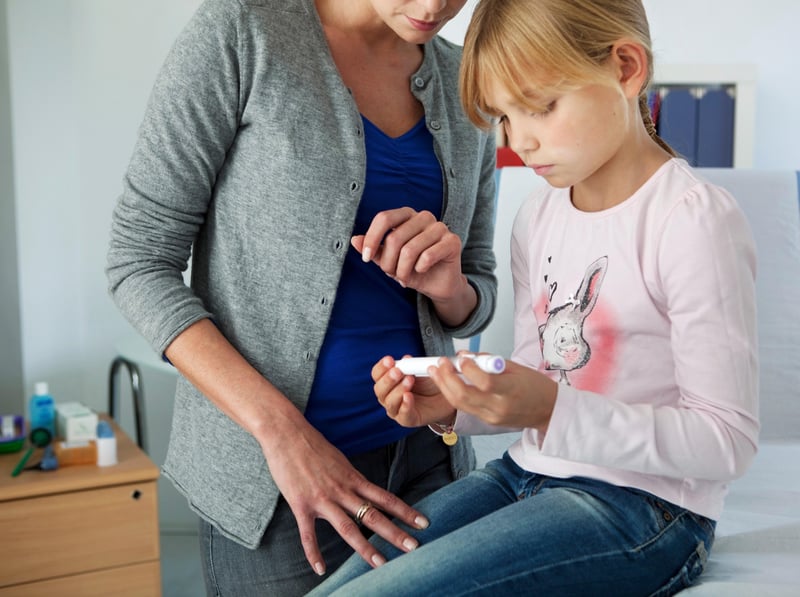Get Healthy!

- Cara Murez
- Posted November 18, 2022
FDA Approves First Drug to Delay Onset of Type 1 Diabetes
The U.S. Food and Drug Administration on Thursday approved the first drug that could delay the development of type 1 diabetes (T1D).
Teplizumab (Tzield) targets the autoimmune issues that drive the disease, rather than its symptoms, making the medication a game changer.
"Today's approval of a first-in-class therapy adds an important new treatment option for certain at-risk patients,"Dr. John Sharretts, director of the division of diabetes, lipid disorders, and obesity in the FDA's Center for Drug Evaluation and Research, said in a news release. "The drug's potential to delay clinical diagnosis of type 1 diabetes may provide patients with months to years without the burdens of disease."
Advocates applauded the approval.
"A delay in the onset of type 1 diabetes will have a tremendous impact on the daily lives of people at risk for diabetes, their families, and the overall health system,"Aaron Kowalski, CEO of the nonprofit JDRF (formerly the Juvenile Diabetes Research Foundation), said in a statement.
"It would free them from the constant burden and stress of blood-sugar monitoring and insulin administration,"Kowalski added. "It would free them from the worry and fear of short- and long-term complications, while giving them the opportunity to learn more about disease management."
People who have two or more T1D-related autoantibodies and whose blood sugar levels are starting to be abnormal are considered at high risk for the disease.
"Tzield can start to address the stark unmet need for disease-modifying therapies and provide people at risk for T1D and their families at least without the burden and complications this disease brings,"the JDRF said in its statement.
T1D affects 1.4 million Americans. Tracy Olsten's daughter, Mikayla, could have been one of them, but Olsten enrolled the girl in a clinical trial for Tzield.
"We know Mikayla has the biomarkers,"Olsten said in the JDRF statement. "We know the probability is high that she will develop T1D in her life. But a little bit more time to live her teenage, young adult and adult years without injections and finger pokes [is a blessing]."
Dr. Cory Wirt enrolled her daughter, Claire, in a clinical trial seven years ago. The girl also had biomarkers and was at risk for developing T1D. She still hasn't progressed to clinical T1D.
"As a mom, I appreciate 83 months of not checking blood sugars multiple times per day, worrying about life-threatening lows, and balancing my child/teen's independence with the importance of tight medical control,"Wirt said in the statement. "Not to mention the significant cost of supplies, office visits and emotional stress. We don't know how long the effects of the treatment will last, but every day without insulin has been a gift!"
The nonprofit noted its role in funding some of the research and researchers, starting decades ago.
That included giving its Career Development Award to Dr. Kevan Herold when he started at the University of Chicago. Herold showed in an early study that he could prevent autoimmune diabetes with an anti-CD3 antibody, the JDRF statement noted.
"The story with the clinical use of teplizumab began with a JDRF grant to support a trial in patients with new-onset type 1 diabetes more than two decades ago,"Herold, now with Yale School of Medicine in New Haven, Conn., said in the statement.
"The recent decision represents a turning point in the field," Herold added. "First, it identifies a way in which an immune therapy to stop the disease process might be combined with cell replacements in those with type 1 diabetes. It also suggests that it is time to more broadly screen to identify those at risk for type 1 diabetes, since now there is a therapy that can change its course."
More information
The U.S. Centers for Disease Control and Prevention has more on type 1 diabetes.
SOURCES: U.S. Food and Drug Administration, news release, Nov. 17, 2022; JDRF, statement, Nov. 17, 2022







